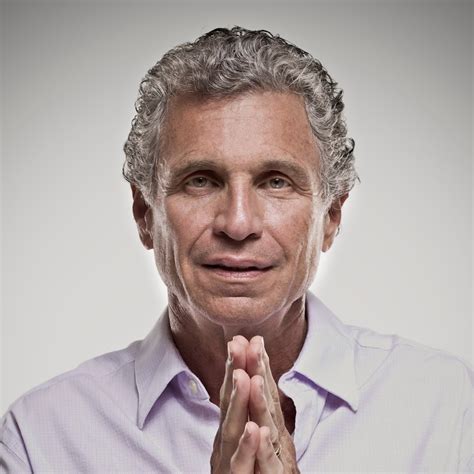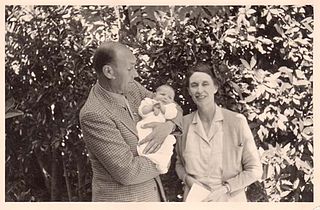A Quote by Swami Vivekananda
Individuality in universality is the plan of creation. Each cell has its part in bringing about consciousness. Man is individual and at the same time universal. It is while realising our individual nature that we realise even our national and universal nature. Each is an infinite circle whose centre is everywhere and circumference nowhere. By practice one can feel universal Selfhood which is the essence of Hinduism. He who sees in every being his own Self is a Pandita (sage).
Quote Topics
About
Being
Bringing
Cell
Centre
Circle
Circumference
Consciousness
Creation
Dual Nature
Each
Essence
Even
Every
Everywhere
Feel
Hinduism
His
Individual
Individuality
Infinite
Man
National
Nature
Nowhere
Our
Own
Part
Plan
Practice
Realise
Realising
Sage
Same
Same Time
Sees
Self
Time
Universal
Universality
Which
While
Whose
Related Quotes
Faith is precisely the paradox that the single individual as the single individual is higher than the universal, is justified before it, not as inferior to it but superior - yet in such a way, please note, that it is the single individual who, after being subordinate as the single individual to the universal, now by means of the universal becomes the single individual who as the single individual is superior, that the single individual as the single individual stands in an absolute relation to the absolute.
Man must know the principle of Creation: giving between each interchanging opposite half of each cycle for the purpose of repeating its giving. This is universal law and each individual must manifest this law. Man will forever war with man until he learns to give his all with the full expectation of equal receiving, and never taking that which is not given as an earned reward for his giving.
The progressive growth of the finite consciousness of man towards this Self, towards the universal , the eternal, the infinite, in a word his growth into spiritual consciousness by the development of his ordinary ignorant natural being into an illumined divine nature, this is for Indian thinking the significance of life and the aim of human existance.
To the mind which looks not to general results in the economy of Nature, the earth may seem to present a scene of perpetual warfare, and incessant carnage: but the more enlarged view, while it regards individuals in their conjoint relations to the general benefit of their own species, and that of other species with which they are associated in the great family of Nature, resolves each apparent case of individual evil, into an example of subserviency to universal good.
You came here with something to do. You are part of a universal consciousness, and there are no accidents in it. In your true essence - not the false self, not the ego part of you, but in the true essence of who you are - you are infinite and you have something very profound to accomplish while you're here. Otherwise you wouldn't be here.
Every individual nature has its own beauty. One is struck in every company, at every fireside, with the riches of nature, when he hears so many new tones, all musical, sees in each person original manners, which have a proper and peculiar charm, and reads new expressions of face. He perceives that nature has laid for each the foundations of a divine building, if the soul will build thereon.
Nothing comes to pass in nature, which can be set down to a flaw therein; for nature is always the same, and everywhere one and the same in her efficacy and power of action: that is, nature's laws and ordinances, whereby all things come to pass and change from one form to another, are everywhere and always the same; so that there should be one and the same method of understanding the nature of all things whatsoever, namely, through nature's universal laws and rules.
In the field of consciousness research-and also in physics and astronomy-we are breaking past the cause-and-effect, mechanistic way of interpreting things. In the biological sciences, there is a vitalism coming in that goes much further toward positing a common universal consciousness of which our brain is simply an organ. Consciousness does not come from the brain. The brain is an organ of consciousness. It focuses consciousness and pulls it in and directs it through a time and space field. But the antecedent of that is the universal consciousness of which we are all just a part.
Our self (Soul) is maya (an illusion) where it is merely individual and finite, where it considers its separateness as absolute; it is satyam (truth) where it recognizes its essence in the universal and infinite, in the Supreme Self, in paramatman (God). This is what Christ means when he says, "Before Abraham was, I am" (i.e. before Abraham was God, who is the same that is in my soul - I am That.)






































